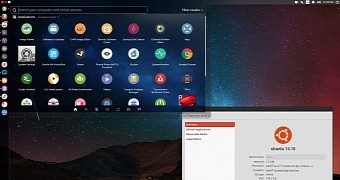There is always a question that is gnawing the Linux community, namely "which is the best desktop environment?" That is a very hard question to answer and most of the time it's all about personal preferences, but it all boils download to one thing, usability.
Discussing something like the best desktop environment is always controversial because it's usually about personal preferences or affinities. Maybe it's something that someone has been using for many years and all the other desktops seem clumsy and annoying, but I think that it's possible to look at some of the alternatives from an objective point of view.
It's difficult to choose what desktops to analyze and we could spend an entire day just listing the important ones and their features, so I think it would be better to list the criteria that make something good or bad.
Default options
Many users will say that they don't really care about the default state of a desktop environment, but I don't think that it's entirely true. In fact, when developers announce default applications for distros, default desktops for operating systems, or even the default settings for desktop environments, people are really interested in that information.
People forget that there is a big swath of users out there that don't mess with their desktop environment and they let it work just as the developers intended it to. The same goes for GNOME, Unity, KDE, and so on.
So, the question is now: "which is the most productive desktop in its default form?" From what I've used until now, Unity is by far the one I have to mess with the least. KDE, GNOME, and Xfce need at least a little bit of tinkering before getting them into shape.
Ease of use
Some desktop environments are easier to use than others and it would be hard to dispute that. You have to look through the eyes of someone who just opened a Linux OS. In this regard, I think that GNOME and Unity are very close in this regard, followed by something like MATE and Xfce, and KDE trailing behind.
If you take a glance at KDE, it might seem easy to use, but that’s just a first look. Imagine opening Kubuntu for the first time and then Dolphin, the file manager. Leaving aside the fact that developers insist on one-click-opening for folders and files, which is really counterproductive, the file manager provides all kinds of options and features that are there just in case someone needs them. And let's not even get into widgets and activities.
On the opposite side, GNOME and Unity have simple interfaces with just the right amount of options. If you want more, you can enable them in other ways.
Flexibility
In this regard, KDE and GNOME take the crown. They are much more flexible than Unity and they can be changed in many ways. I've seen someone making KDE look like Unity, just for the fun of it. It doesn't work the other way around. GNOME can be tweaked with extensions, which are installable from the browser with just one click. It can't get any better than that.
Productivity
Defining productivity for a desktop environment is very difficult and this is the best that I can put it. The DE needs to be invisible for its user and let him do the work. The desktop needs to be a tool that you use and you don't know about because it does its job. This is the most personal experience possible and each individual has various routines that make one DE better than another.
It took me a couple of months to get through all the major DEs out there, including Unity, KDE, GNOME, Cinnamon, MATE, and Xfce. When I was done with them, I installed Ubuntu again and I found that I felt relieved. If I were to put them in a top, it would be Unity, GNOME, MATE, Cinnamon, Xfce, and KDE.
So, which desktop environment do you think is the best? What makes it special for you?

 14 DAY TRIAL //
14 DAY TRIAL //